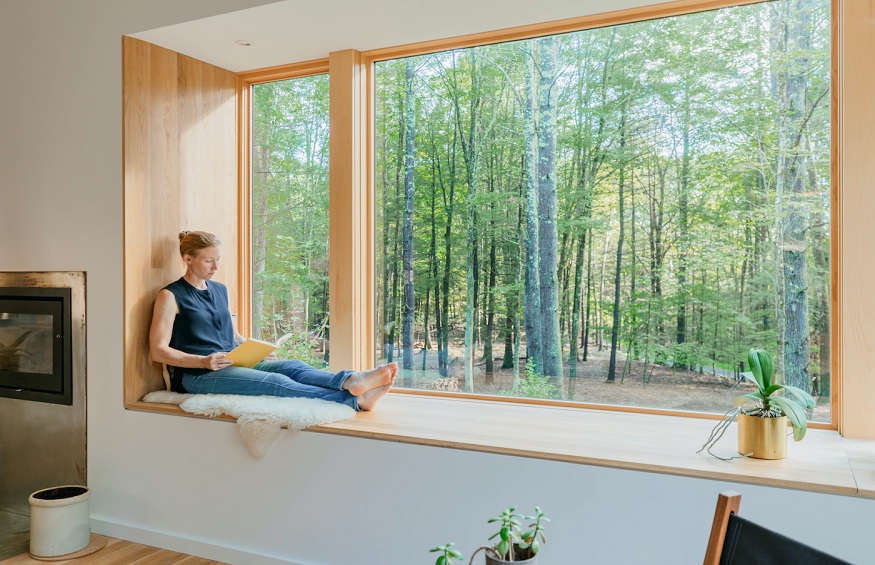Most of us are familiar with air pollution, such as smog, ozone depletion, and the smoke emitted by industrial chimneys, but an astonishing truth is that interior pollution is 2 to 5 times higher than outside pollution. Indoor air pollution is extremely harmful to mental and physical health, although it is largely ignored. Indoor air quality has to be improved for a healthy living.
Maintaining a healthy air flow within your house is critical; otherwise, it may lead to a slew of issues. Chronic headaches, allergies, coughing, and asthma are all possible side effects.
What Are The 5 Ways To Keep Indoor Air Flow Healthy?
Because we spend the majority of our time inside, understanding the impacts of indoor air pollution and allergens has become more important in recent decades. Because modern dwellings are airtight, these allergens are unable to escape rapidly, necessitating the development of a better alternative. As a result, we’ve put up a list of five strategies to improve indoor air quality. So, let’s get started:
Criteria for indoor air quality
- Maintain a clean environment indoors.
- Dehumidify your residence.
- A good ventilation system is essential.
- Smoking should be avoided.
- A good air filter.
Maintain a Clean Environment Indoors
Keeping your house clean is the most effective approach to keep allergens and pollutants out. Allergy symptoms and difficulties are less likely to worsen in clean homes. There are three methods for effectively cleaning your home:
Vacuuming, sweeping, and mopping
Vacuuming with a doormat
It is advised that dust not be allowed to collect on the floors and that it be sucked up using a vacuum with a HEPA filter. A vacuum cleaner with a HEPA filter can also assist to reduce the amount of pollutants like PBDEs in the air (Brominated Fire-Retardant Chemicals). Furthermore, vacuuming helps to remove allergens and irritants such as pet dander and hair, pollens, and dust mites. A vacuum cleaner should be used twice or three times each week.
Mopping
Mopping is an important component of cleaning since it gets rid of all the dirt and particles that your vacuum cleaner couldn’t get rid of. If you mop your floor on a regular basis, you won’t need soap or cleaner; a piece of microfiber and simple water will enough.
Make Use Of A Door Mat
A doormat at each door is essential because it keeps dirt from entering the house via your shoes at bay. Pesticides, soil particles, and other contaminants and allergies are also reduced. If your mat is large enough, it will absorb all of the dirt from your shoes. The best method is to leave your shoes outdoors and wear different home slippers or shoes.
Dehumidifying
The growth of mildews and mould indicates a higher humidity level in a space. Make sure you’re maintaining a proper humidity level. Humidity levels of 30 to 50 percent are advised to keep irritants and allergies under control. The moisture in the air is reduced by using a dehumidifier and an air conditioner. Additionally, it aids in the effective management of pollutants and allergens.
What Are Some Ways to Dehumidify Your Home? Do you have any suggestions?
For your convenience, we’ve compiled a list of practical dehumidification suggestions, which are as follows:
- Water vapours are created during cooking, dishwashing, or bathing; they increase moisture in the air, therefore use an exhaust fan or open a window.
- Im-home plants should not be overwatered.
- Always use a clothes dryer and make sure the vent is pointed outside.
- To avoid mould, fix any leaking areas in your home.
- Keep your dehumidifier and air conditioner’s drip pans empty.
System of Proper Ventilation
The simplest way to keep your home’s inside air clean is to properly ventilate it. At least once a day, the entire interior space should be exposed to fresh air. Open all of your windows as much as possible to allow fresh air to circulate throughout your home.
Some individuals refuse to open their windows in order to keep dirty or smoky air out. It may rescue you from one difficulty, but be aware that it is exacerbating the other. Trickling ventilation is the best option for such air, since it allows the interior contaminant to escape.
To improve indoor air quality, refrain from smoking
Cigarette smoke is the most major source of indoor air pollution. According to studies, cigarette smoke includes over 4,000 compounds that are harmful to one’s health. Smoke’s pollutants can cause a variety of significant health issues, including asthma, bronchitis, cancer, SIDS (Sudden Infant Death Syndrome), and heart difficulties. They can increase the chance of a fetus’s development being incomplete. Passive smokers are more susceptible to these health issues. As a result, it is advised to refrain from smoking inside.
Gases Should Not Be Emitted
Inside your house, you may be exposed to a variety of unseen and odourless gases. Indoor furnaces, heaters, propane stoves, and other similar equipment are used by a large number of people. These household appliances generate hazardous gases such as nitrogen dioxide, carbon monoxide, and poisonous vapours that are not visible. As a result, make sure your home is clean and well-ventilated. Otherwise, you might face a slew of significant health issues.
Appropriate Air Filter
Finally, utilising gas detectors and air filters is a great method to make sure you’re breathing healthy, clean air. Many hazardous gases, such as radon, can enter your house unnoticed and spread in considerable proportions. Furthermore, testing this gas is difficult.
Because radon is produced by a uranium explosion, it poses a greater risk of lung cancer. However, a variety of radon detectors have been developed to aid in the treatment of these conditions. Disposable HEPA filters are included with these appliances, which assist to reduce excess moisture and pollutants in the air.
Some of the Most Commonly Asked Questions
What can you do to raise the standard of indoor air quality?
If you wish to increase the indoor air quality, you should consider the following factors:
- Indoor plants should not be overwatered, and there should not be too many of them.
- In your house, use an air purifier and a dehumidifier.
- Fresh air should be circulated throughout your home.
- Keep your home free of allergies and irritants by keeping it clean.
- Use the correct air filters and replace them on a regular basis.

